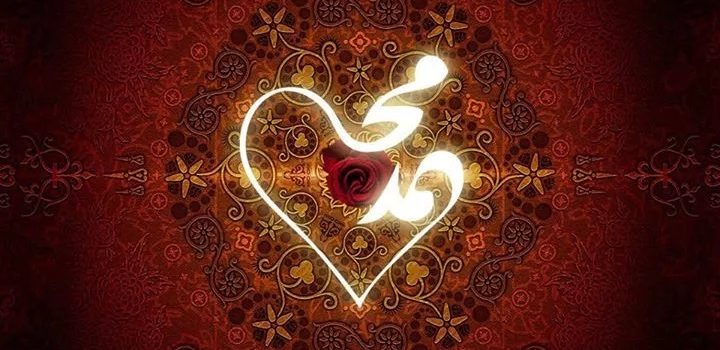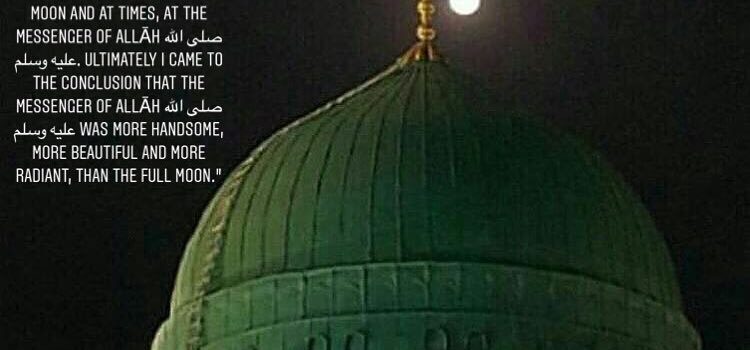Ya’qoob Ibn Ibrahim said, from Ibn ‘Ulayya from Abd Ul-Azeez Ibn Suhayb from Anas from the Prophet صلى الله عليه و سلم and also Adam from Shu’ba from Qatadah from Anas that the Prophet صلى الله عليه و سلم said, “None of you will believe until I am more beloved to him than his father, his children, and all people.”
Ibn Hajar’s explanation
- This hadith was also narrated by Abu Hurairah.
- Abd Ul-‘Azeez Ibn Suhayb’s narration, which was also recorded by Ibn Khuzaimah in his sahih from Ya’qoob (the shaykh of Imam Bukhari) has the wording “…more beloved to him than his family and his wealth”, rather than “his father, his children, and all people”, as was also recorded by Muslim from Ibn ‘Ulayya.
- There is a also a narration recorded by Al-Isma’eeli from ‘Abd Ul-Warith Ibn Sa’eed from ‘Abd Al-Azeez with the wording, “A man does not believe…” and it is more complete in a sense while the wording, “None of you believe….” is more complete in another sense.
The mention of “…his father and his children” was used pinpointing those most beloved to a person as they are (usually) more beloved to a rational person than (other) family and money. “Himself” was not included in the narration, since they (the father and children) may even be more beloved to a person than himself, so their mention is sufficient.
Question: Is the mother included in the saying ‘his father’?
Either the statement is generally referring to the parents of the child (i.e. includes the mother), or he sufficed by mentioning one without mentioning the other.
This narration used the example of someone who is beloved to a person, as if he صلى الله عليه و سلم said until he loves me more than those who are beloved to him. The Prophet’s saying “and all people” is a method that occurs often (in the Arabic language) citing the general after the specific. The reason the father was mentioned before the son is because he precedes him in age and honor, and the son was mentioned before the rest of the people as he receives more compassion (from his parents) than others.
Question: Is oneself included in his saying, “and all people”?
The self is apparently included in the generality of the saying “and all people”. Some said that the specification “him” (more beloved to him) excludes oneself from the statement however this is the weaker of the two views. The stronger view which is supported by the narration of ‘Abdulah Ibn Hisham where oneself (i.e. loving the prophet more than oneself is mentioned as will be expounded on.
“Loving” (in the narration) is the love that occurs out of choice, not natural love here as clarified by Al-Khattabi. Al-Nawawi said it (the love mentioned in the narration) is an outcome of the nafs (self), which either calls to evil (الأمارة) or reaches a level of conviction (مطمئنة). The person who is able to attain conviction, reaches (correct) love of the prophet صلى الله عليه و سلم, while the one who follows the evil (within himself) does not.
Al-Qadee ‘Eyaad considered it (the love of the prophet صلى الله عليه و سلم) as a condition for the correctness of eemaan describing the love as exaltation and reverence. His view was countered by Al-Qurtubi’s argument that exaltation (exalting the thing or person) is not required to feel love, a person may acclaim or exalt something without necessarily loving it, therefore this (exaltation and reverence) was not the intent. However, whoever doesn’t attain this love has not perfected eemaan.
A statement from Umar (Ibn Al-Khattab) was recorded by the author (Bukhari) in the “chapter of oaths” from the narration of ‘Abdullah Ibn Hisham where Umar said to the Prophet صلى الله عليه و سلم, “You are more beloved to me than everything except myself” so he responded, “No, by the one in whose hand is my soul, until I become more beloved to you than even yourself.” So Umar said, “Now you are, by Allah, more beloved to me than my own self. So he said, “Now, Oh Umar.” Hence the required love does not come about by merely exalting the status of the prophet, as surely ‘Umar did so before this incident occurred.
One measure of this love, would be giving a person a choice between losing something of his belongings to see the prophet صلى الله عليه و سلم. If he would not let the opportunity to see the prophet pass him by, even at the expense of losing his possessions, it can be said that he has attained the sought after love (of the prophet صلى الله عليه و سلم). The parable is not limited to seeing the prophet physically, as it also applies to the role of supporting his sunnah and defending his legislation while quelling those who oppose it.
The narration also hints at the importance of contemplation which will lead to the mentioned love (of the prophet صلى الله عليه و سلم). There are two types of love with the self; love for oneself and love for another. Each person wishes to have a healthy love for himself throughout his life without problems in this regard. As for the love that is experienced towards other people, we realize that there must be some benefit that comes about from that love either immediate or delayed. If a person then ponders over the benefit of loving the messenger صلى الله عليه و سلم,he realizes that it is he صلى الله عليه و سلم who brought him out from the darkness of disbelief into the light of faith, he realizes that it is he صلى الله عليه و سلم who showed him the path to eternal pleasure (in paradise), and he realizes that this benefit is greater than any other type of benefit. Therefore, he صلى الله عليه و سلم deserves a greater share of love than any other person, because the benefit acquired from loving him صلى الله عليه و سلم is greater than the benefit acquired from loving any other person. The people (believers) will vary in this regard according to their level of awareness or negligence of it, and without a doubt the companion’s (of the prophet صلى الله عليه و سلم) strength of this love was the greatest and most complete since they knew him صلى الله عليه و سلم personally and they understood this benefit more than any other person.
Al-Qurtubi said, “Whoever believes in the Prophet صلى الله عليه و سلم with true eemaan is not void from this love, except that the level of love varies, some took a greater share while others tool a lesser share. As in the parable of a person who is indulged in desires, his negligence screens him from the love (of the prophet صلى الله عليه و سلم), yet when he remembers the prophet صلى الله عليه و سلم he longs to see him so much, that he would choose it over his family, children, parents, and wealth. He is willing to risk himself in the face of danger (for the sake of the prophet صلى الله عليه و سلم), and has no hesitation in doing so. The love of the prophet is engrained in their hearts, but dies down due to heedlessness.


